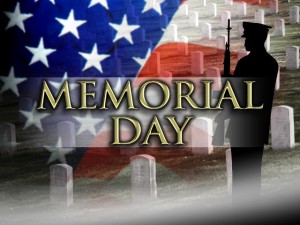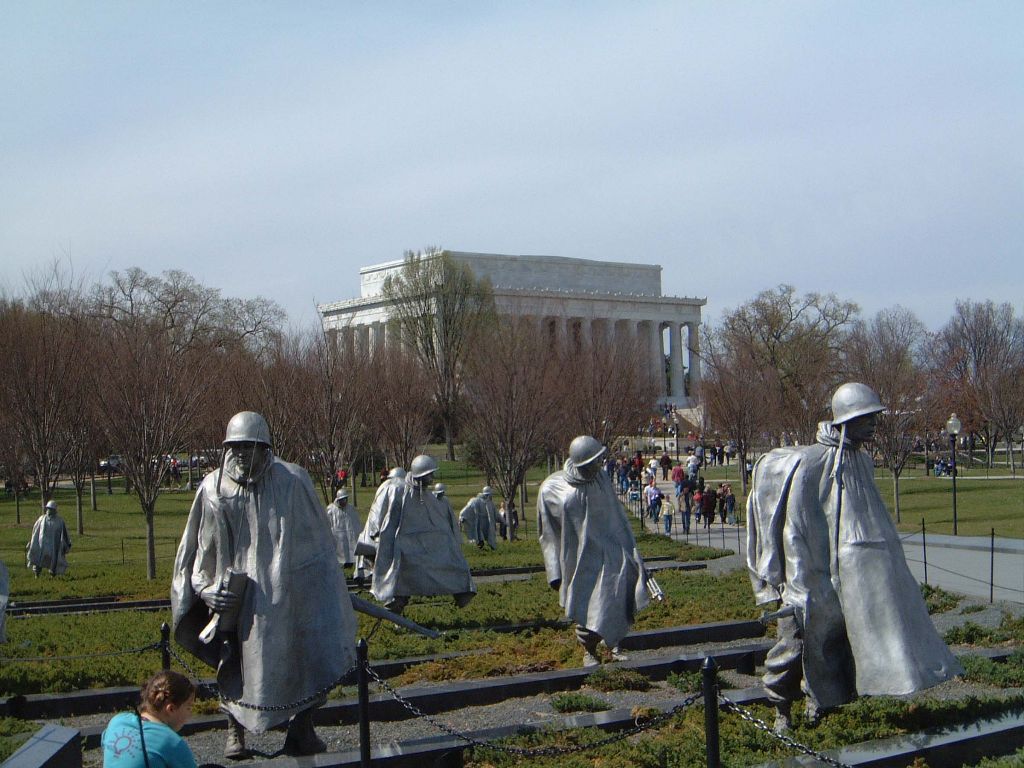 As I reflect on Memorial Day, I try to make it as personal as I can. That’s not easy because I never served in the military. My dad was in the newly formed Army Air Force after WWII, so he didn’t see combat. His brother—my uncle—was in the service during the Korean War, but I don’t recall any particular information about that; I don’t think he actually went to Korea. If he had seen combat, I assume I would have heard about it.
As I reflect on Memorial Day, I try to make it as personal as I can. That’s not easy because I never served in the military. My dad was in the newly formed Army Air Force after WWII, so he didn’t see combat. His brother—my uncle—was in the service during the Korean War, but I don’t recall any particular information about that; I don’t think he actually went to Korea. If he had seen combat, I assume I would have heard about it.
When I reached the age where I could possibly become part of the armed forces, Vietnam was in full bloom. I went to college right after high school, thereby earning a deferment. The draft was on, but protests against it, and Vietnam in particular, led to a new system—kind of a lottery—where dates of the year were pulled out of a drum, and each draftable guy was assigned a number according to his birthday. I remember watching the news that evening, waiting to see the number for my birthday. It turned out to be #254, meaning I didn’t have to worry about being drafted. My college roommate, however, came up #16, so he voluntarily signed up for the Air Force, headed to officer training.
So I went on with my life, got married, and never even considered joining the military. I believed God had other plans, and He did. But that doesn’t mean I don’t appreciate those who have served. Those post-Vietnam years were bad for the armed forces: returning GIs being called baby-killers; Congress cutting back on national defense to the point that spare parts for airplanes, etc., were unavailable; an honorable service turned into dishonor by the prevailing post-Vietnam syndrome.
Ronald Reagan restored our national defense and brought the proper kind of pride back to the military. Once again, it is honorable to serve. Yes, we’ve done our best to turn each branch of the armed forces into a social engineering project with the outright acceptance of homosexuality, thereby damaging the luster of military service. But I’m going to continue to honor those who serve and recognize those who have died in an attempt to rid the world of the evils of taxation without representation and attacks on liberty of conscience (American Revolution), naval impressment and national disrespect (War of 1812), slavery and illegal rebellion against lawful authority (Civil War), despotic colonialism (Spanish-American War), German militarism (WWI), Nazism and other forms of fascism (WWII), communism (Korea and Vietnam), Middle East dictators (Gulf War), and radical Islam (War on Terror).
On the whole, the United States military has been used to carry out noble objectives, even in wars that brought protests and disunity at home. The soldiers who served, and particularly those who died in their service, deserve to be acknowledged and honored on this day.

